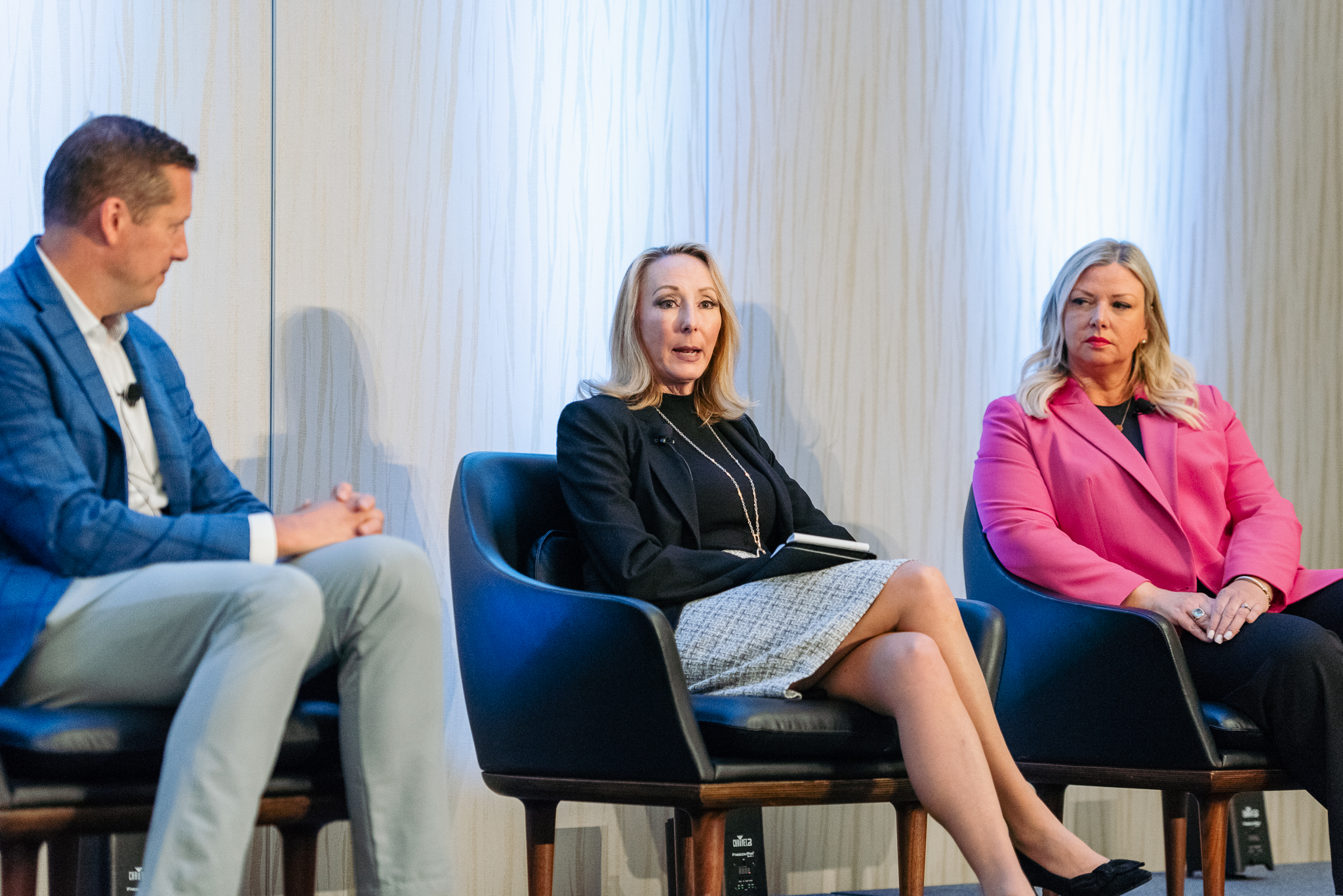Leaders at companies like Help at Home, HCR Home Care and Home Helpers are making big changes to their organizations as they look to the future.
At Home Helpers, the biggest change in the last year has been around data and informatics. The company uses the information gained from that data to make decisions at both a macro and micro level.
“We have really invested in data and informatics to support our franchisees – to help them operate more efficiently, profitably and effectively – and to help the families we serve and the caregivers we serve have information, make good decisions and deliver exceptional care,” said Emma Dickison, president and CEO of Home Helpers, last week during a panel discussion at Home Health Care News’ FUTURE conference.
Dickison noted that the information resulting from this data is particularly helpful for a large franchise brand like Home Helpers.
Cincinnati-based Home Helpers is a home care franchise that provides personal care, nutrition, companionship, and more. The company has 348 franchise locations and serves approximately 1,500 communities in 39 states.
For its part, HCR Home Care has focused on improving employee retention within the company and has made specific changes to achieve this.
“Post-Covid, our focus has been on employees and how we can continue to engage and support these caregivers,” said Suzanne Turchetti, president of HCR Home Care, during the discussion. “We’ve invested heavily in technology. We have a rewards program for our caregivers that is starting to show signs of increased retention, and we’re really making sure we’re supporting our caregivers, not only in their professional development, but also in the personal challenges that prevent them from coming to work.”
Founded in 1978, HCR Home Care is a provider of home care and home health services throughout New York State.
According to Turchetti, the personal challenges that HCR Home Care faces for its employees include food shortages and housing problems.
To support these efforts, the company has received an ARPA grant from the federal government.
“I always say our employees are the heart of our organization, and if we don’t take care of that heart, then we don’t have anyone to take care of those patients,” she said.
Employee retention is especially important at HCR Home Care as the company went through a difficult period during the COVID era, during which the company experienced an extremely high turnover rate.
Since then, HCR Home Care has begun to turn things around.
“One of the things we started doing in the later years of Covid, probably late 2022, is what we call our ‘Grow Our Own’ model,” Turchetti said. “We have a New York State licensed home health aide training program. We bring in people who are new to the world of health care, train them and pay them for their training. We’ve seen a huge improvement in retention of the people we bring through our training program compared to the people who are already certified.”
Previously, HCR Home Care focused primarily on recruiting support staff who already had industry experience. The company saw its turnover rate drop from nearly 70% to 40%.
In addition, Help at Home aims to improve conditions for family caregivers.
“They have the toughest job every day, they face this hurdle,” said Tim O’Rourke, president of Help at Home, during the discussion. “They have to care for people in their homes and it’s our job to support them in that. We’ve invested heavily in technology and resources to really support caregivers.”
Help at Home is based in Chicago and has more than 180 locations in 12 states. The company provides personal care services to more than 66,000 clients through over 53,000 caregivers.


A key investment for Help at Home was 24/7, a technology platform that enables the company to enhance its recruitment efforts.
Help at Home has also invested in data that will enable the company to more successfully match caregivers with clients.
The company has also set up 24/7 support for caregivers.
“The caregiver can always contact a human being who will talk to them and help them when they need it,” O’Rourke said. “Ultimately, we have actually invested in an entire care team that supports the caregiver in their daily work.”
Ultimately, Dickison believes Home Helpers had to overhaul its recruitment process, which meant being open to candidates who didn’t fit the usual hiring criteria.
“We had to completely rethink how and who we hire using tools and resources,” she said. “We learned through a study that personas and psychographics really apply to different positions in the nursing industry. Using that data, we realized that we tended to hire the same type over and over. We always wanted a full-time person who would be with us 40 hours a week plus overtime. We really passed over some really good candidates in those personas who weren’t going to stay for life.”

